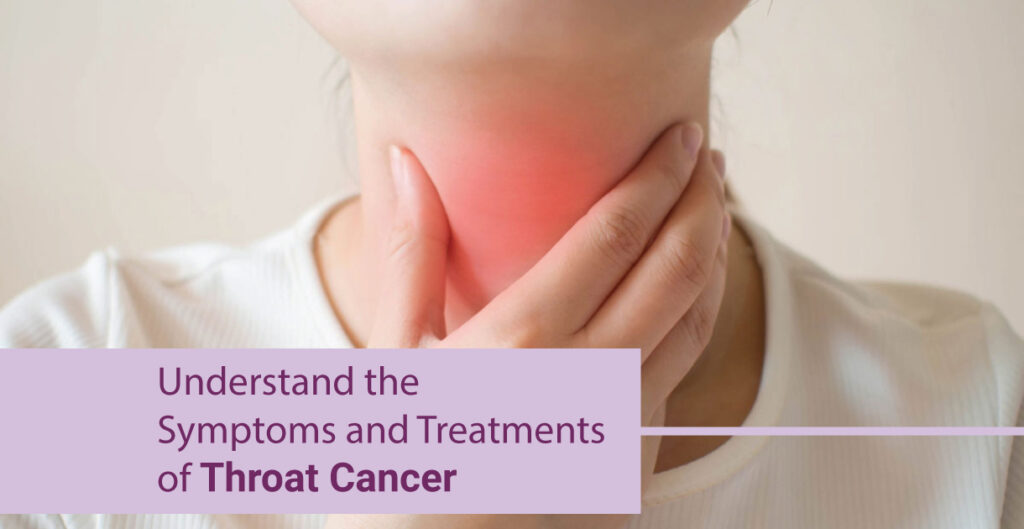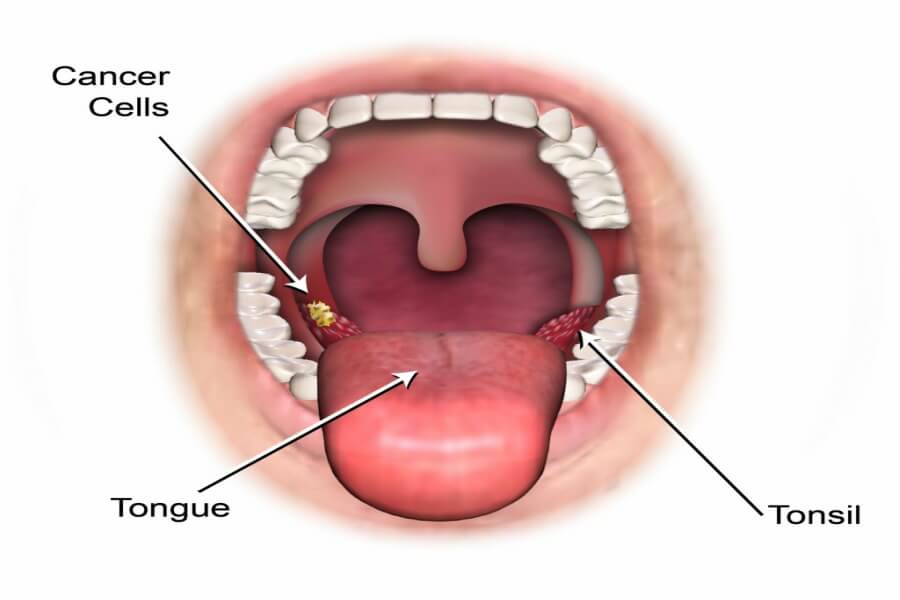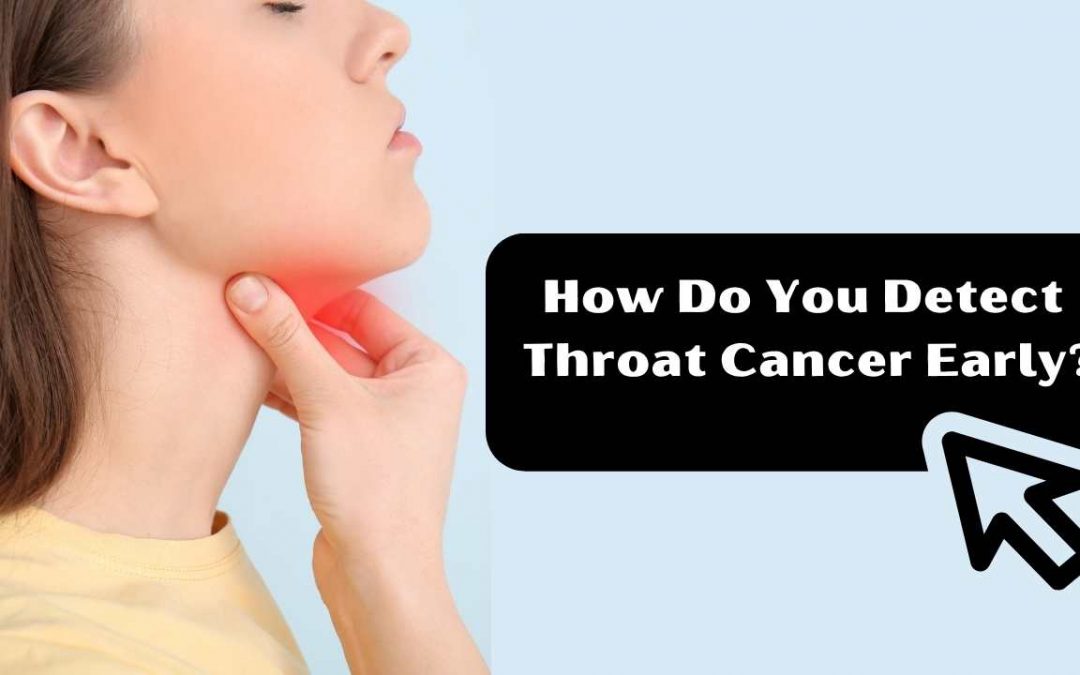Is it conceivable to have throat cancer and be utterly oblivious that you have it? After getting relieved from throat cancer, I would like to share how I knew I had throat cancer. There are a number of symptoms of throat cancer that are similar to those of other conditions, such as allergies, colds, and sinus infections. When detected at an earlier stage, throat cancer is more amenable to treatment. In order to arrive at an accurate diagnosis, you will need the assistance of knowledgeable physicians located in your area who are able to evaluate your condition and decide whether or not a biopsy is required.
We’ll look more in-depth at throat cancer, the factors that can lead to it, and the warning signs you should watch out for.
You’ll Also Like: Black Tartar on Teeth: Causes and Removal
How I Knew I Had Throat Cancer: There Are Symptoms Of Throat Cancer
- A Neck Mass
Do not freak out if you find a mass in your neck. There are a variety of neck masses besides cancer. In addition, goiters, strep throat, and tooth infections can all bring on these symptoms. The ear, nose, and throat specialists at our Raleigh practice will be able to identify the precise root of the problem and recommend an effective course of treatment.
- A Loss Of Weight For No Apparent Reason
It is possible that you have cancer if you are losing weight without changing how you eat or the amount of exercise you do, particularly if the weight loss is more than ten pounds. As was just mentioned, a good number of these symptoms are brought on by conditions that are not related to throat cancer. However, if you are experiencing a number of these symptoms at the same time, you must seek treatment with a physician. They can assist you in determining the precise root of your issues.
- It’s Hard for Me to Swallow
Even though this is not the case, you may think food is caught in your throat. The medical term for difficulty swallowing is referred to as dysphagia. This symptom will gradually become more severe until it significantly impacts your diet and restricts your ability to consume solid foods. If you are experiencing discomfort when you swallow, you should never hesitate to consult a medical professional.
- A Sore Throat That Does Not Go Away
A sore throat is a common condition, and throat cancer is not typically the root cause of most cases. However, if you’ve been experiencing a sore throat that won’t go away no matter what treatment you try, you should make an appointment with your doctor as soon as possible. This is especially important if you’re also experiencing any of the symptoms listed above.
- Variations in the Sound of Your Voice
These changes might manifest as persistent hoarseness or impaired communication ability. There are some potential causes of hoarseness, the vast majority of which are not cancerous; however, if you have had persistent problems with your voice, especially if they are connected to other symptoms of throat cancer, you must make an appointment for a comprehensive evaluation.

Why Does It Develop In The Throat?
Regular consumption of alcohol and tobacco, including chewing tobacco and snuff, are to blame for seventy-five percent of all cases of cancer affecting the head, neck, and throat. According to the data provided by the National Cancer Institute, people who use both tobacco and alcohol are at a greater risk of developing cancer than those who use either tobacco or alcohol on their own.
Where Exactly Does Cancer Of The Throat Originate?
Cancer of the throat typically begins in the flat cells found within the throat. On the other hand, tumors aren’t confined to just those areas. In addition, tumors can develop on your tonsils, larynx (the box that houses your voice), and epiglottis, the cartilage responsible for closing your windpipe when you swallow.
Cancer of the throat can go by a number of different names depending on where cancer first began and which parts of the throat are impacted by the disease. Cancer of the throat can have effects on the following:
- The area is known as the nasopharynx (the upper part of the throat behind the nose.)
- Anatomy of the oropharynx (the part of the throat at the back of the mouth)
- The hypopharynx is the area of the throat that connects to the esophagus and the larynx, also known as the voice box.
- The larynx is the area (laryngeal cancer)
The American Cancer Society reports that the area around the vocal cords (glottis) is the origin of more than half of all cases of laryngeal cancer. Approximately one-third of cases develop above the vocal cords (supraglottic). Cancer of the larynx claims the lives of 3,640 people each year. Because fewer people are smoking, thankfully, the number of newly diagnosed cases of laryngeal cancer is decreasing by approximately 3 percent each year.
What Are The Factors That Increase The Likelihood Of Developing Throat Cancer?
Although smoking is likely the most obvious risk factor, others should also be considered. These are the following:
- Having GERD (gastroesophageal reflux disease)
- Consuming an insufficient amount of fresh fruits and vegetables
- Being subjected to the HPV virus (the human papillomavirus)
- Consuming abnormally high levels of alcoholic beverages.
Keep in mind that using e-cigarettes or vaping is not a risk-free alternative to smoking. Electronic cigarettes contain carcinogenic chemicals like nicotine and diacetyl, which have been linked to a variety of lung diseases. It is highly recommended that you abstain from using traditional and electronic cigarettes. People over 50 are most likely to develop throat cancer, and men have a tenfold higher risk of developing throat cancer than women. When someone smokes cigarettes and drinks alcohol, their risk of developing throat cancer significantly increases compared to drinking or smoking alone.
Cancer of the Throat and HPV

A person with a sexually transmitted disease known as HPV also has an increased risk of developing throat cancer. According to the Centers for Disease Control and Prevention (CDC), there are more than 40 different types of HPV that are capable of infecting the mouth and throat. Some types of HPV are not harmful.
This condition is known as “oral HPV.” Cancers can be caused by the human papillomavirus (HPV) at the base of the tongue, on the tonsils, and in the back of the throat. According to some studies, oral HPV is three times more prevalent in men than women. To gain a better understanding of the oral HPV transmission process, additional research is required.
You’ll Also Like: What Is 24-Hour Fitness And How Does It Helps Millions of People?
Who Ought to Get Screened for Throat Cancer?
Due to the ease with which throat cancers can be diagnosed through more involved procedures, no straightforward screening tests are available. Unless you already have disease symptoms, it is not advised getting routine throat cancer screenings. If your doctor determines that you need screening for throat cancer, they will examine the area using a special endoscope that is very thin, lighted, and equipped with a very small camera. In order to examine your vocal cords, a laryngoscopy may be performed on you. If there are areas that raise concerns, such as a mass in the neck, your doctor may remove a portion of it for further examination.
Conclusion: How is the Cancer of the Throat Treated?
Radiation therapy may be sufficient to treat throat cancer if caught at an early stage. On the other hand, more advanced cases call for a combination of radiation therapy, chemotherapy, and surgery.
